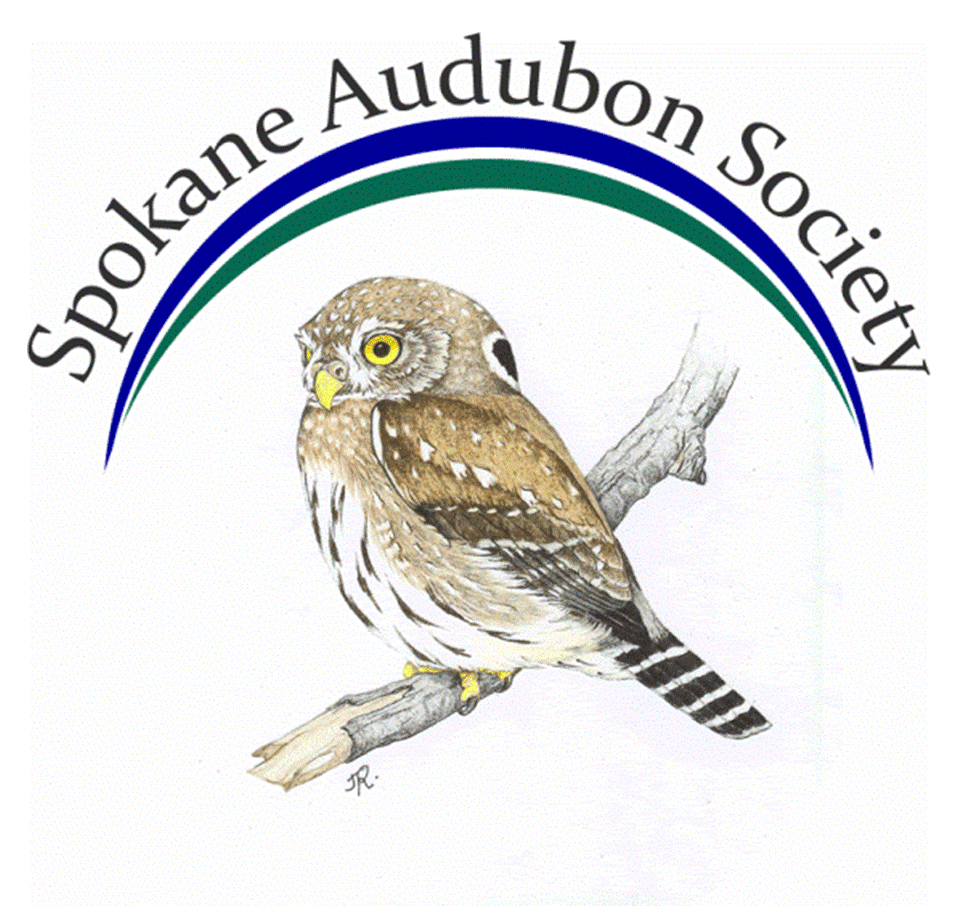Alan enjoying the view atop Table Mountain overlooking Cape Town, South Africa.
Alan McCoy
by Madonna Luers
Our current Spokane Audubon Society chapter president Alan McCoy has been a board member “on and off” for about ten years, but he’s been a chapter member since the early ‘80’s when he moved to Spokane.
“I was on the ‘folding committee’ with some of our chapter founders,” he recalls fondly, back in the day when everyone received a paper edition of the Pygmy Owl newsletter in the postal mail. He’s always participated in the Spokane Christmas Bird Count (CBC) and, since the late 90’s, has served as the chapter’s CBC compiler.
Alan’s love of birds and birdwatching has been truly lifelong. His librarian mother started backyard bird feeding and birding when he was born in 1952 in Greensboro, North Carolina, and he learned about birds “through osmosis.” He attended the University of North Carolina in Chapel Hill for a couple of years where he found geography fascinating. He dropped out after two years to try to discover what he wanted to do with his life. He ended up at the University of Utah in Salt Lake City where the author of “Utah Birds,” William H. Behle, taught an ornithology class that Alan took twice. He couldn’t stay awake for the class, but loved the field trips.
“There is a large difference between a birder and an ornithologist,” Alan says. “The excruciating detail that ornithologists must explore is nowhere near as fascinating to me as the sounds, colors and behaviors of living birds in the wild.” He bought his first binoculars in the early 70’s and spent lots of time learning the birds of Utah’s Bear River Migratory Bird Refuge and southern Utah.
Eventually Alan completed a degree in geography at Utah where he met his wife, Audrey Burr, who was working on a Masters in social work. In his early 20’s, he knew that he didn’t want a desk job, that he wanted to work with his hands but use his head, too. He read Studs Terkel’s 1974 book, Working, about the meaning of work, which included an example of a piano tuner.
Despite having no musical background, not even growing up in a home with a piano, he moved to Ohio to attend a piano technician school. “There’s no reason I should be, but I’ve been a piano technician now for the past 40 years,” he says. Perhaps his keen ear for birds works when he tunes pianos.
Alan and Audrey, who is from Helena, Montana, ended up in Spokane when they wanted to move west to a small town big enough for employment opportunities for both. Alan started working for piano dealers, churches, schools and private homes. In 2002 he began half-time employment with the music department of Eastern Washington University (EWU) and started contracting piano services for the Spokane Symphony. After 15 years with the symphony, he tired of working on concert weekends and passed that contract to a friend. He plans to retire from EWU on September 30th.
Although he enjoys his own backyard and local birding, Alan has traveled to Ecuador, Costa Rica, Mexico, Florida, the southwest U.S. and Texas to see new birds. During a trip to Panama with Audrey he met an excellent field trip leader, Simon Thompson. Last year he joined Thompson, and a group of birders, just coincidentally from North Carolina, for a trip to South Africa where almost all of the 370 species he saw were “lifers.” That, he says, was outstanding, and rivals his favorite birding experience to Ecuador with his non-birding father.
“Mom couldn’t go on that trip to Ecuador because she was ill,” he recalls. “My one regret is that I never went on a birding field trip with my Mom. We would talk on the phone after Christmas Bird Counts, comparing hers in North Carolina with mine here in Spokane. I remember one year we had the same number of species – 36 – which was terrible for her and good for me!”
Alan doesn’t have a favorite species, but he does love ducks. They’re all beautiful, he says, but the sounds they make are especially endearing, from whistling wings to quacks or funny little noises like the Northern Shoveler’s “fffttt, fffttt, fffttt.”
Alan’s tip for new birders is to go afield with a good birder who is also a patient teacher. He advises getting good binoculars and learning how to use them. When you see a bird, keep your eyes focused only on the bird while bringing the binoculars up to your eyes to avoid losing it.
The top issue for the future of birds and birding is climate change, he says. Habitat loss, window and wind turbine collisions, domestic cat predation and other important issues pale in comparison to our changing climate. He notes the recent massive wildlife losses in Australia’s climate-change-fueled wildfires. But addressing climate change is challenging with a federal government administration that not only refutes the science, he says, but doesn’t understand that economic health is tied to environmental health.
Alan hopes that he brings the “environmental sensibility” that his mother taught him to the chapter. He wants to help educate and inspire others to protect “our lovely planet.” He also hopes to encourage fellow birders to just “stop and smell the roses” -- leave the “busyness” behind and enjoy our fellow creatures.







